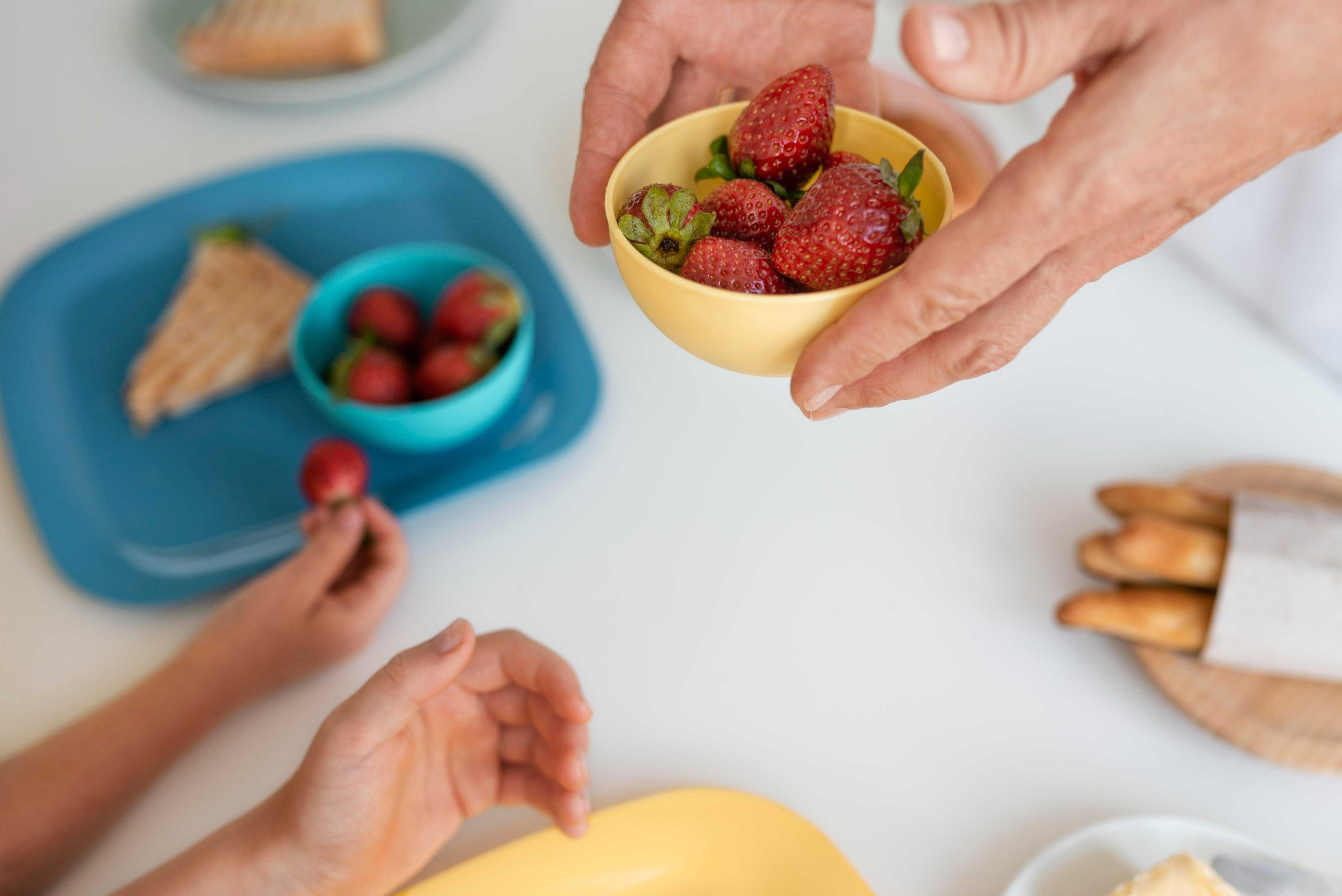
Ensuring Nutrient-Rich Lunches for Preschoolers
Lunchtime is crucial for preschoolers, serving as a midday refueling for their active bodies and growing minds. Providing a variety of nutrients is essential to support their development. However, as parents or guardians, ensuring a balanced diet for preschoolers can be challenging.
Nutritional Needs of Preschoolers
Preschoolers require a diet rich in various nutrients to support their growth and development:
- Carbohydrates: Complex carbs found in whole grains, fruits, and vegetables provide sustained energy and keep them feeling full longer.
- Protein: Lean meats, poultry, fish, eggs, beans, and dairy products are crucial for muscle, bone, and tissue development and repair.
- Fat: Good fats from nuts, seeds, avocados, and fatty fish aid in nutrient absorption and provide energy.
- Vitamins: Vitamin A, C, and D support various functions such as bone health, healthy skin, and vision.
- Minerals: Calcium, iron, and zinc are vital for bone, blood, and overall growth and development.
Lunch Options for Preschoolers
Here are nutrient-rich lunch ideas tailored to preschoolers’ needs:
- Whole-Grain Turkey & Cheese Sandwich: A balanced source of carbs, protein, and fats; add lettuce, tomato, and avocado for extra nutrients.
- Hummus and Veggie Wrap: Packed with complex carbs, protein, healthy fats, and vitamins; consider adding cheese for calcium.
- Fish Fingers and Sweet Potato Wedges: Nutrient-rich option with protein, healthy fats, complex carbs, vitamins, and minerals.
- Chicken Quesadilla: Provides carbs, protein, and healthy fats; enhance with salsa and guacamole.
- Greek Yogurt Parfait: A protein-rich option with carbs and vitamins; opt for low-fat Greek yogurt.
Understanding Preschoolers’ Nutrient Needs
Preschoolers’ diets should encompass a variety of foods to meet their nutritional requirements:
- Healthy Carbohydrates: Opt for complex carbs like whole grains, fruits, and veggies for sustained energy.
- Protein Sources: Choose lean meats, fish, eggs, beans, and tofu for muscle and tissue development.
- Wholesome Fats: Incorporate sources like avocados, nuts, seeds, and fatty fish for brain development.
- Vitamins & Minerals: Ensure intake of vitamin A, C, D, iron, and calcium through a balanced diet.
Recommendations for Making a Healthy Lunch
Follow these tips for packing a nutritious lunch:
- Include Variety: Incorporate protein, healthy fats, carbs, fruits, and veggies.
- Be Creative: Use presentation techniques to make meals appealing.
- Involve Your Child: Let them participate in meal planning and packing.
- Opt for Nutritious Snacks: Choose options like yogurt, trail mix, or sliced fruits.
- Encourage Hydration: Provide water and limit sugary drinks.
Simple Lunch Ideas
Quick and delicious lunch suggestions:
- Turkey & Cheese Rolls: Pair with whole-grain crackers and fruits/veggies.
- Vegetable Wrap: Serve with sliced strawberries and almonds.
- Pasta Salad: Accompanied by sliced peaches.
- Peanut Butter Banana Sandwich: Include baby carrots and ranch dressing.
- Chicken Salad: Serve with whole-grain crackers and fresh veggies.
Providing a balanced and nutritious lunch is vital for preschoolers’ overall health and wellbeing. By offering diverse foods, encouraging healthy choices, and involving children in the process, parents can ensure their preschoolers receive the essential nutrients they need to thrive.


